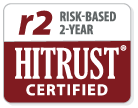By Matt Lambert, M.D., CMO, Curation Health
As providers navigate the journey to value-based care, they are facing a host of new expectations related to risk-based contracts. Two massive hurdles are the need to drive more accurate and efficient clinical documentation to support HCC capture, and to reduce provider administrative burdens.
To achieve these goals, providers must take a new approach to capturing more comprehensive and less burdensome clinical documentation that accurately reflects the acuity and clinical status of the patient.
In order to be more successful in risk-based contracting, providers should consider a series of steps that have proven impactful for other organizations:
1 – Start with Leadership – Rosalynn Carter once said, “leaders take people where they want to go. A great leader takes people where they don’t necessarily want to go, but ought to be.” The team leading and implementing value-based care changes must be trusted, collaborative, and well-versed in high-quality communication and change management. Without strong leadership, particularly clinical leadership, efforts to make even small, incremental changes to clinical documentation will be complex. Without strong clinical leadership, these documentation changes will feel insurmountable.
2 – Share the Right Information – Providers should also prioritize quality, streamlined information sharing amongst clinicians, as well as with patients. There is no lack of data or information available to clinicians. The issue, rather, is that there is too much information and much of it is not valuable to clinicians at the point-of-care. The “Three Rights” of HIT are more important than ever- The right information, at the right time, in the right part of the clinical workflow.
3 – Focus on Small, Incremental Changes – To say documentation and coding is complex is an understatement. Working with various provider groups has proven that tremendous strides can be made simply by focusing on basic, common conditions. Narrowing efforts down to only two or three common conditions has actually shown tremendous impact for one particular physician group in the Midwest. They focused specifically on diabetes and behavioral health, and have achieved a 56 percent increase in RAF value capture compared to the prior year.
To learn more best practices aimed at streamlining the adoption of risk-based contracts through intelligent clinical documentation and coding best practices that align with value-based care, please read this case study.

